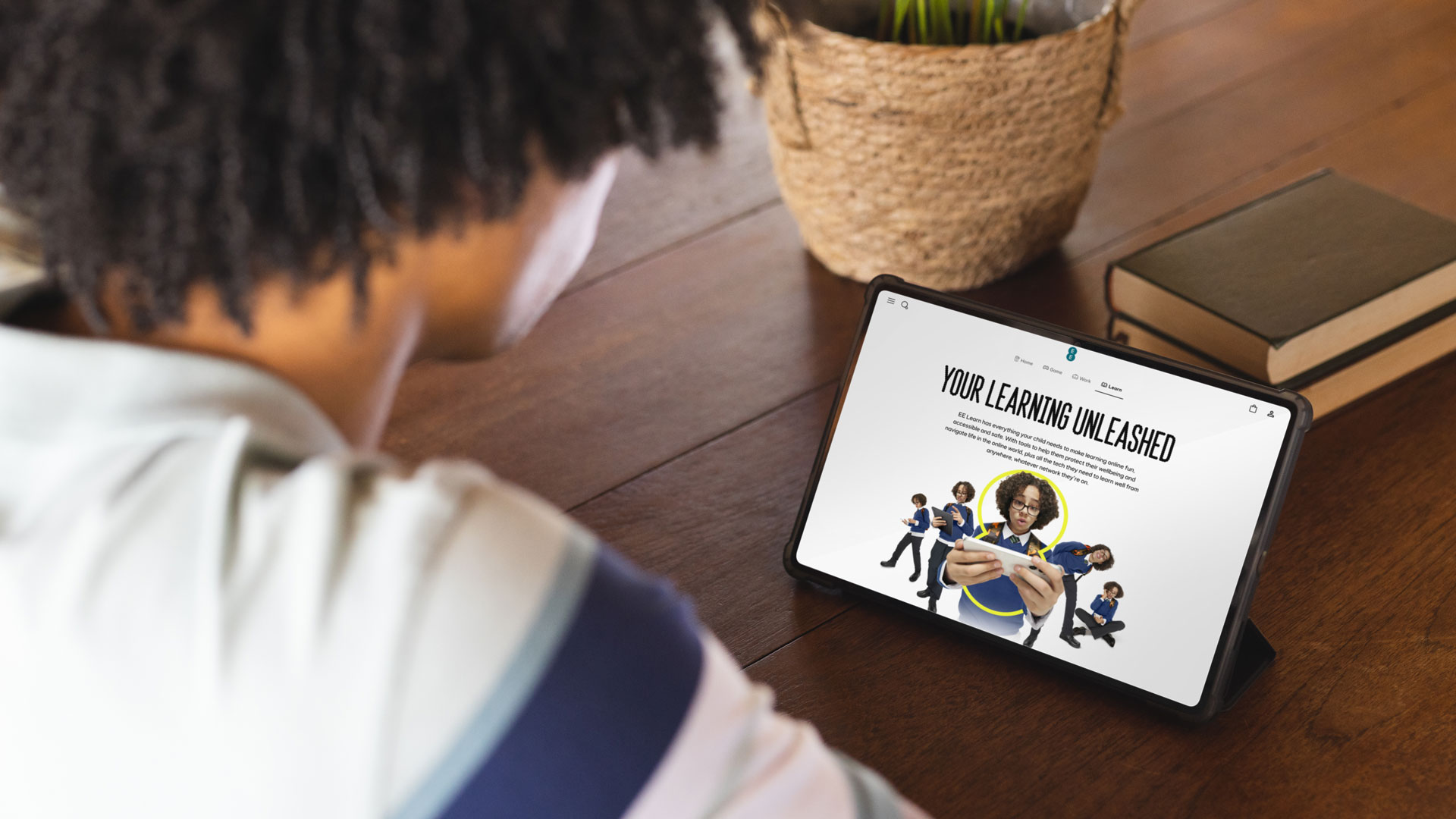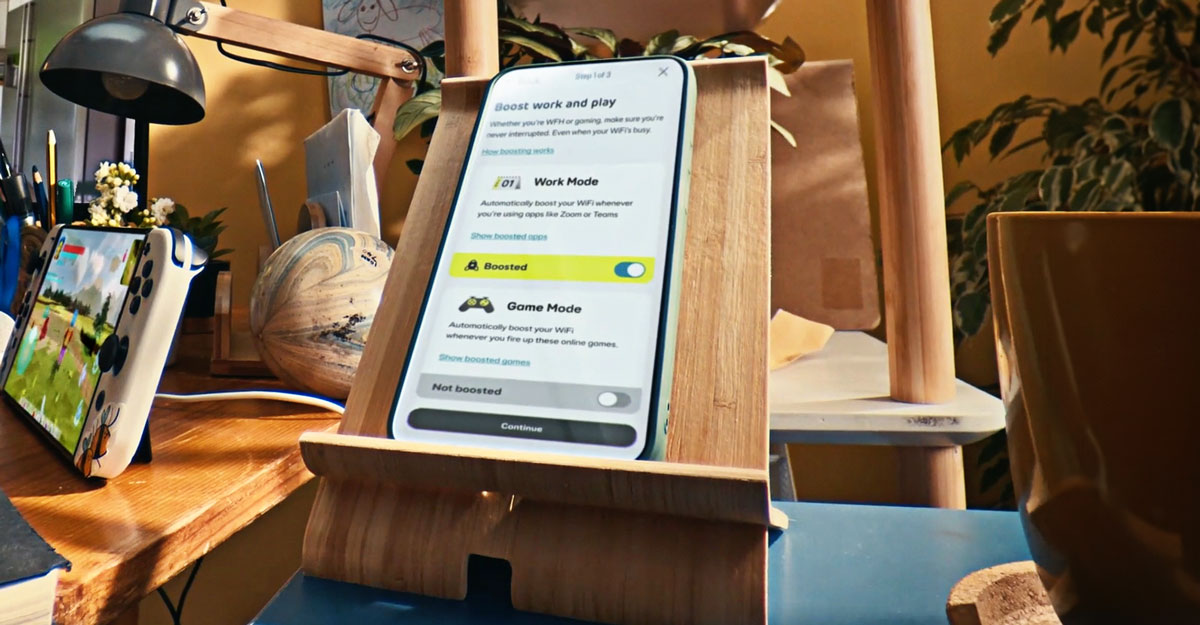
As parents, we all want our children to be resilient, confident and able to cope with life's challenges. But in today's complex digital world, it can feel like our kids face more pressure than ever.
Between school stress, social media pressures, and simply growing up in uncertain times, our children need support and tech skills to develop healthy coping strategies that will carry them through their teens and beyond, inside and outside the classroom.
The good news is that we can take plenty of positive, practical steps as parents to teach excellent life skills that can help them handle difficulties, setbacks, and all those intense emotions that come with being a teenager. We asked parenting coaches and child psychology experts to share their insights. At the same time, EE Learn provides all the essential elements for your child to enjoy online learning in a fun, accessible, and secure environment while giving them tools to help them feel more resilient and safe online.

1: Encourage critical thinking while staying safe online
With so much information coming at 11 to 17-year-olds online, educational psychologist Aura De Los Santos says we need to empower kids to be critical rather than passive consumers. "Everything you read on social media is not true, so you must investigate: Let them remember that repeated information does not mean it’s true.”
Teaching children to question sources, check facts, identify potential biases and not take things at face value is crucial. These skills allow kids to make informed judgements rather than be misled by biased reports or fake news. Psychologist Dr Deborah Gilham agrees. “Educate your kids about clickbait and sensationalism. Stress the importance of not being swayed by catchy headlines and encouraging your teen to delve into the content for a more comprehensive understanding.”
EE Learn provides all the essential elements for your child to enjoy online learning in a fun, accessible, and secure environment. It comes with tools that support their well-being while they navigate the online world, as well as tech to help them learn well from anywhere. Wi-Fi controls from EE will keep students safe outside school, whether having fun with EE’s unlimited data packages, participating in online study groups, or revising with friends.

2: Encourage them to connect more in the real world
Parenting coach Sapna Rad notes that while social media can provide a constant digital whirlwind for teens, meaningful human connections are still vital for building coping skills and resilience. “Help your teen to balance online interactions with face-to-face connections, so encourage hobbies, sports, and any activities that allow teens to build meaningful relationships beyond the screen.”
School clubs, sports teams and other activity-based groups will allow your teen to be part of a group or team. They can even explore volunteering opportunities, such as helping at an animal shelter or a food bank. These experiences enable them to understand how important it is to help out and give them a powerful sense of self-worth that isn’t influenced by how many followers or likes they have.
3: Talk about responsible online behaviour
Many of us have experienced someone writing a nasty or cruel comment online. It happens because the internet feels distant and impersonal, making it easy to forget there are real people and real feelings on the other side of the screen.
Practising respectful disagreement, fact-checking content before sharing, and considering how their posts might affect others helps your kid understand how to behave responsibly.
Psychologist Louise Metcalf suggests, "It’s important to keep using examples to help your teen understand how bad behaviour on social media can affect others." She recommends talking openly with your teen about times you've been hurt by a comment online. Share how it made you feel. They need to understand that their posts also impact others, sometimes unintended.

4. Celebrate progress, not perfection
De Los Santos points out that following powerful online influencers can affect how our children view themselves in the real world. “Unhealthy perfectionism can derail student mental health.” Being unable to follow an online trend or measuring yourself against an unrealistic ideal can affect self-esteem, too.
Rad suggests helping your child ‘filter the FOMO’. “Social media often showcases the highlight reels of others, leading to comparison and fear of missing out. Help your teens focus on their own journey and appreciate their unique experiences.”
Encouraging your teen to follow accounts that inspire them rather than make them feel inadequate can help. Suggest limiting time with accounts that trigger envy. Tell them that retouching apps and filters create unrealistic expectations - even for celebrities.
5. Encourage regular social media breaks, but watch your own use!
Balancing screentime with other activities allows children to clear their heads, be more present and relieve stress. The key is to lead by example! Model putting your phone away to be fully present with family, friends, and activities. As a parent of a teen, you’ll know that they notice what we do more than what we say.
Setting ground rules for tech breaks, such as no phones at the dinner table, no tech after a specific time in the evening, and no phones in the bedrooms, can help. EE can help with WiFi controls that help everyone switch off and drift off at bedtime.
EE Learn provides mindful apps like Calm to help support your child’s well-being. Mindfulness can reduce stress, improve focus, and help your teen recognise and manage anxious feelings. Calm has lots of guided meditations and breathing exercises to help them relax and get a good night’s sleep, which is essential for their healthy development.
Visit ee.co.uk/learn to find out more and enjoy great offers on the Calm app. Plus, save £20 a month on new, unlimited mobile plans when you choose EE Broadband.







